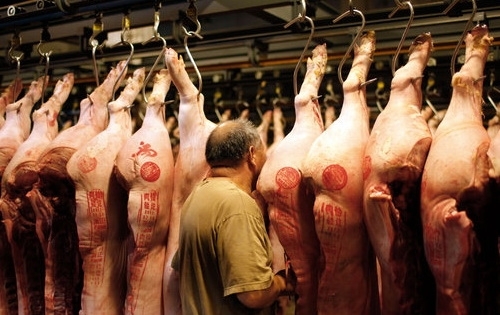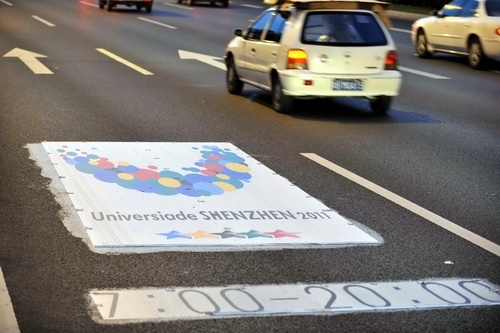

News, page 2
~ Despite often being thought of as the state-backed pillars that define China Inc., central-administered state-owned enterprises (COEs) are likely to experience difficulties over the coming 6 months as both business costs and the amount of money owed by their customers are beginning to increase.
~ In the first half of the year, accounts receivables at the 100-odd SOEs that fall under the control of the State-owned Assets Supervision and Administration Commission (SASAC) exceeded 1 trillion yuan, a historic high. The accumulated operating revenue of all the COE under SASAC control is around 9.68 trillion yuan, which means accounts receivable as a proportion of operating revenue has already exceeded 10%, much higher than the level at most listed companies.
~ According to statistics obtained by the EO, the prime operating costs of COE rose by 25% in the first half of the year, when compared to the first 6 months of 2010, the sharp rise was mainly due to an increase in the cost of raw materials, labor and financing.
~ In order to cope with increased cost of obtaining capital, COEs are issuing more corporate bonds. In the first of the year, 99 COE issued bonds, raising a total 4.55 trillion yuan, an increase of 16% on the amount raised through bond issuance in the first half of 2010.
~ Executives at some COE told the EO that they’re worried that the coming challenges will be even worse than those faced 2008. Many COE only managed to make it through the depths of the financial crisis thanks to the 4 trillion yuan stimulus package unveiled by the central government at the end of 2008. It’s unlikely that they’ll be so lucky this time as there appears little interest in introducing any major policy initiatives aimed at supporting the large state-owned groups.
Original article: [Chinese]

MOC: Trade to Grow 20% in 2011
News, page 4
~ An official from China's commerce ministry told the EO that the ministry remains optimistic about the country's trade prospects despite increasing turmoil in the global markets.
~ Imports and exports totaled US$1.7 trillion in the first half of this year, up 26% from a year earlier and the Ministry of Commerce expects China's trade to grow around 20% this year,
~ The ministry of Commerce recently convened a meeting in a remote northeastern city of Manzhouli to discuss the global situation and China's trade prospects. At the meeting, the ministry called on the government to increase its role in the international businesses.
Original article: [Chinese]

Are Pork Prices Really Beginning to Fall?
News, page 6
~ Wholesale pork prices dropped 0.5% over the week Jul 25-31 when compared to prices in the preceding week, according to Ministry of Commerce data released on Aug 3. This marks the first time in more than 3 months that pork prices have dropped for two consecutive weeks.
~ The increase in supply and decrease in demand are behind the gradual decline in prices. For example, in June the number of live pigs increased to 456 million, an increase of 0.5% year-on-year, according to data released by the Ministry of Agriculture.
~ In terms of demand, in keeping with seasonal trends, pork consumption has dropped off over the summer, in addition, recent high prices have also helped to curb demand to a certain extent.
~ In addition, Ministry of Commerce also released pork reserves onto the market in July.
~ However, some analysts believe that the drop in pork prices over the past couple of weeks could be a misleading trend. It is estimated that there will be no significant decrease in prices before winter and then prices could well rise again as consumption reaches its peak over the Spring Festival period.
~ Before Spring Festival, pork prices should remain stable or increase slightly as this is the peak season for pork consumption is roughly from the Mid-autumn Festival (mid-Sep) to the winter solstice, said Zhou Wangjun, the deputy-director of the Price Division of the National Development and Reform Commission.
~ Deputy-director Zhou also predicted that pork prices could fall considerably next Spring
Original article: [Chinese]
Potash Industry Insiders Accuse Top Importers of Deliberately Overpaying
News, page 7
~ People working in the fertilizer industry say that Sinochem Group and Sino-agri Group, the two companies with exclusive responsibility for agreeing the price of potash imports, deliberately offered to overpay foreign companies for the raw material.
~ Wu Sihai, the president of international Fertilizer Industry Association, told the EO Sinochem Group and Sino-agri Group gave up the chance to co-ordinate negotiations with potash importers in other countries.
~ Instead, Sinochem and Sino-agri signed a contract with Belarusian Potash Company to pay $470 for each ton of potash between July and December, $70 dollars more than the price from January to June.
~ Canada’s PotashCorp, the world’s largest producer of potash, owns a 20% stake of Sinochem’s listed subsidiary Sinofert, China’s biggest fertilizer maker and distributor and the country’s biggest importer of Potash. PotashCorp also partly owns China’s main potash provider, Canpotex.
~ In recent years, China has been consuming around 7 million tons of potash per annum. One person working in the fertilizer industry told the EO that China is capable of producing more than 5 million tons of potash every year, adding that Sinochem and Sino-agri also had 2 to 3 million tons of potash reserves.
Original article: [Chinese]

Leaving Shenzhen: Residents Flee Ahead of the World University Games
Nation, page 11
~ Many people have chosen to escape from Shenzhen ahead of the World University Games which begins in the city on Aug 12. Many of those fleeing the city complain that the various measures introduced by local government to ensure the success of Universiade, are having a negative impact of the everyday lives of ordinary Shenzhen residents.
~ "Some time ago, the so-called building reconstruction projects exposed millions of Shenzhen residents to a world full of dust, noise and pollution for several months” complained Yang Fuxiang, a public servant who has decided to leave Shenzhen with his whole family while the University Games take place.
~ What Yang find most unacceptable is that during the opening ceremony, residents living near to the Shenzhen Bay Stadium will be forced to leave their flats for 5 hours for security reasons. Absent residents will also be requested to leave the lights in their apartments on while their away, in order to improve the aesthetics for the TV sceen. It’s said that the municipal government will compensate residents more than 300 yuan for leaving their lights on. Those not willing to leave will have security guards stay with them inside their apartments.
~ Liu Jiangyong, a migrant worker running a newsstand has also chosen to escape the city as the Games have not only disturbed his everyday life but have also affected his business.
~ During the Games, due to government concerns about food safety, newsstands have been strictly forbidden from selling food and drinks. Liu said he won’t be able to meet costs if he only relies on newspaper and magazine sales. His son has also lost his job as a truck driver as trucks are not allowed to take to the city’s streets during the day. Liu also said that 30-40% of his friends would leave the city during the Games.
~ People have also chosen to flee the city because of concerns about the inconvenience that special traffic measures introduced for the Games are likely to have on Shenzhen’s roads during the Games.
Original article: [Chinese]
Watchdog Probes Top Executive at Morgan Stanley's Partner China Fortune Securities
Market, page 17
~ China’s stock market regulator has opened an insider trading investigation into Yue Yuanbin (岳远斌), an investment banker who is currently deputy department head at China Fortune Securities, the Shanghai based-investment bank that recently formed a joint venture with Morgan Stanley.
~ The China Securities Regulatory Commission, or CSRC, believes that in 2008 Yue illegally bought shares in chemicals producer, Shanghai 3F New Materials Company, after hearing of its restructuring plans from his former colleague Ma Xianyu. At that time, Yue was working for Guotai Junan Securities.
~ Yue denies receiving inside information from Ma and insists that he bought the stock based on public information and his own judgment.
~ As it happened, Yue didn’t profit from the trade, but instead lost at least 500,000 yuan and was therefore exempt from a criminal trial. Instead, the CSRC plans to ban him for trading for five years and fine him 200,000 yuan.
Original article: [Chinese]

Cooking Oil Producers Accused of Hoarding Peanuts, Driving Up Prices
Corporation, Page 29
~ Peanut farmers, who had been shifting to more profitable crops, are now selling their nuts for around 13 yuan a kilogram almost double the price twelve months ago.
~ Mr. Xiang, a Shandong farmer who has been selling the nuts for 20 years, says prices have risen for two reasons: firstly, his peers have been allocating less land to growing the nuts and secondly, major peanut oil producers, such as Lu Hua and Yihai Kerry, have been buying extra peanuts to store.
~ An official from the agricultural office in Shandong Province, Zhang Suqin, says that these two companies’ decision to hoard is a reaction to the expected shortage of peanuts.
Original article: [Chinese]
Links and Sources
New York Times: Pork image

